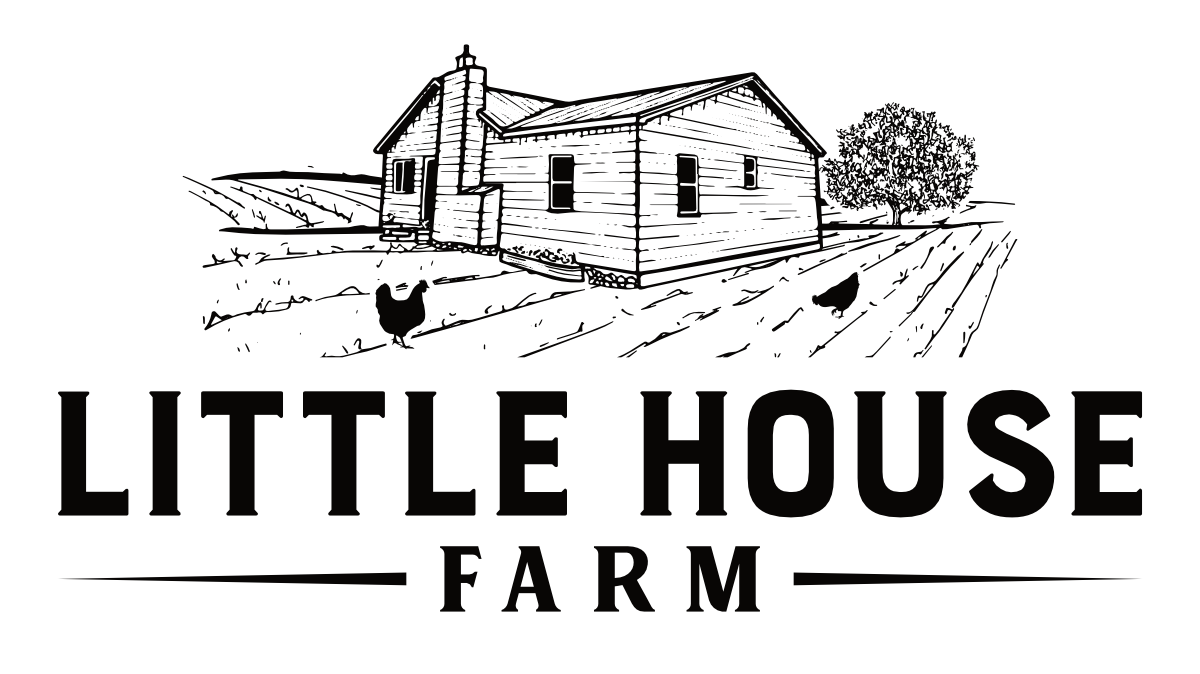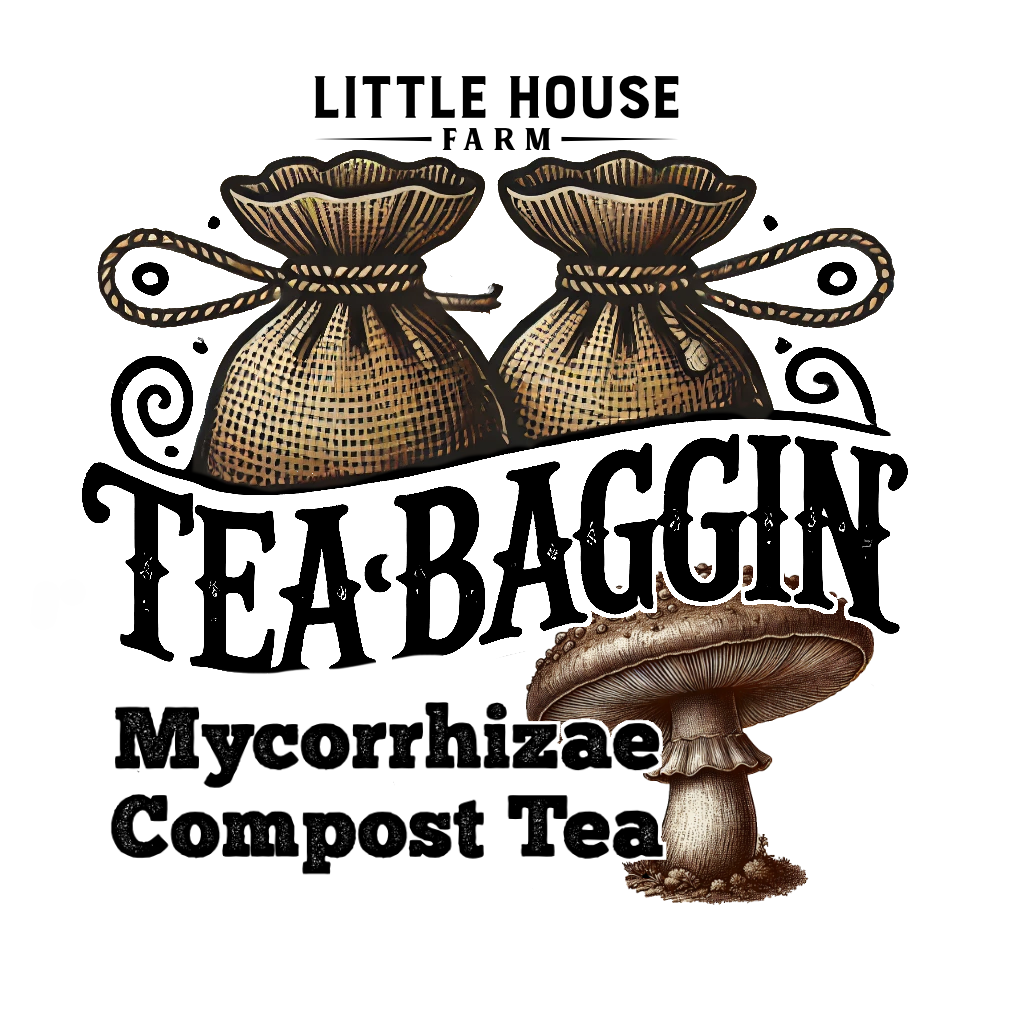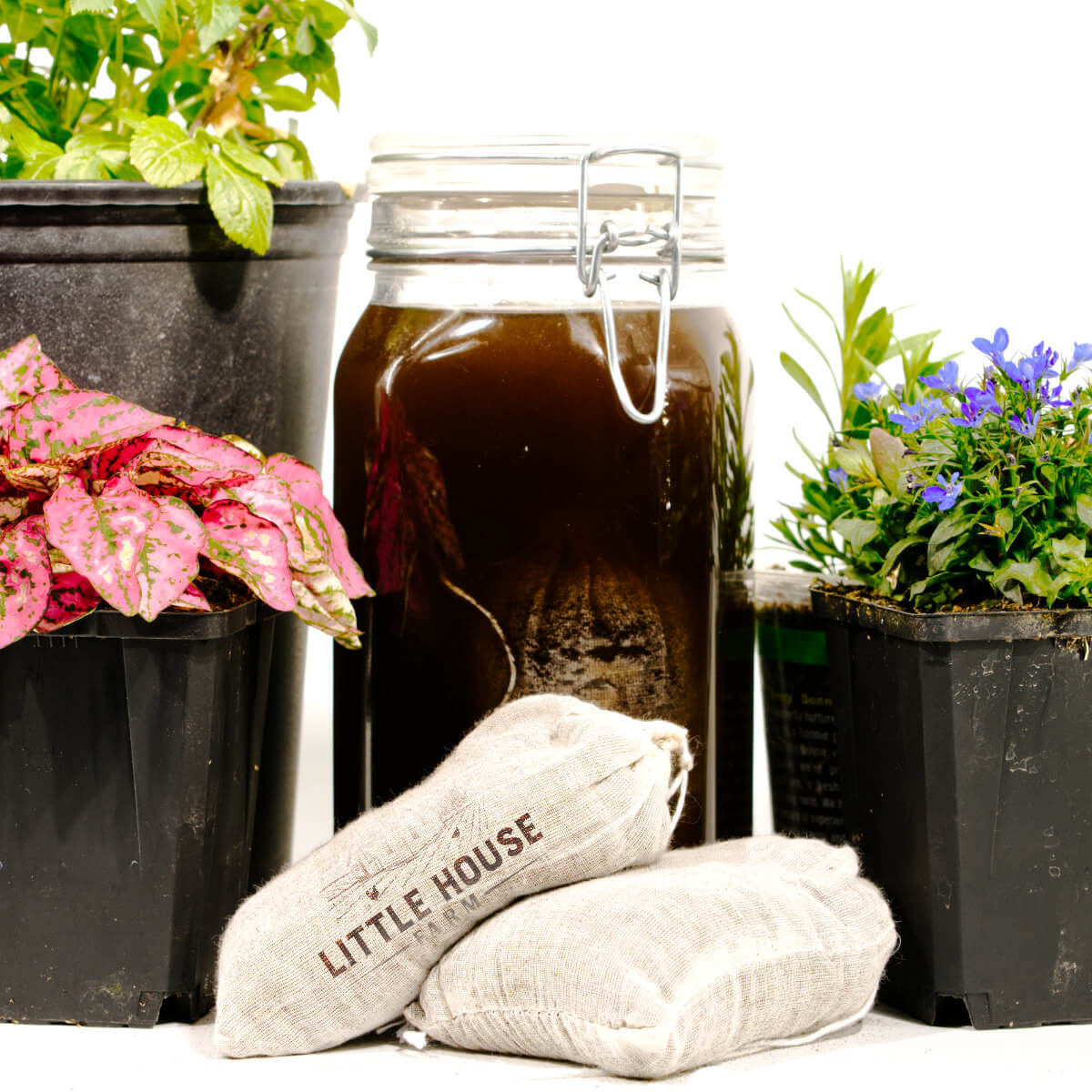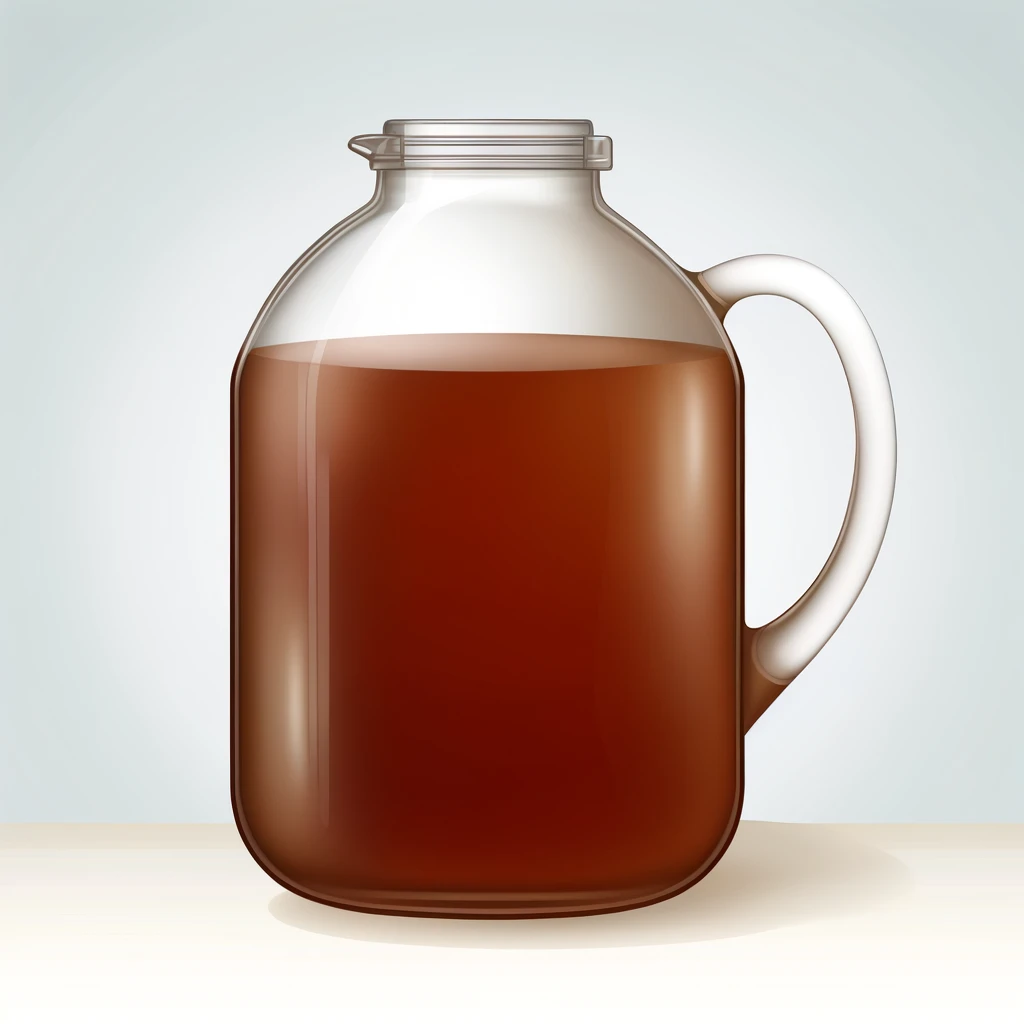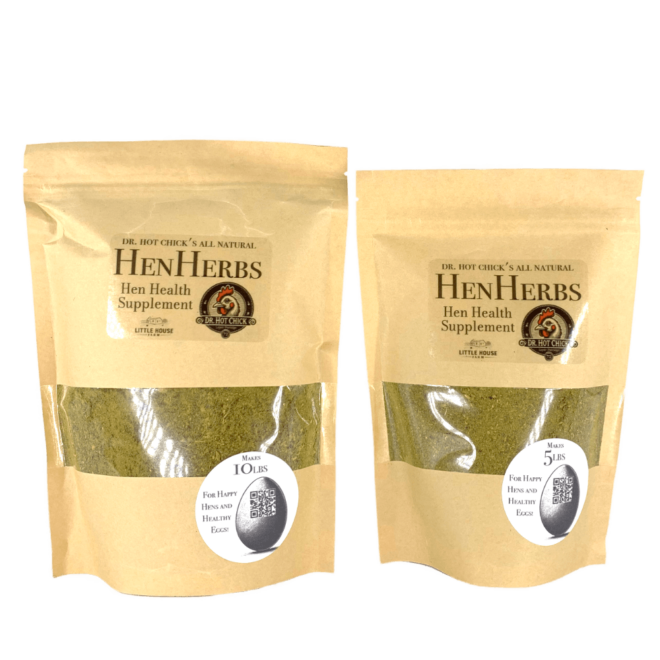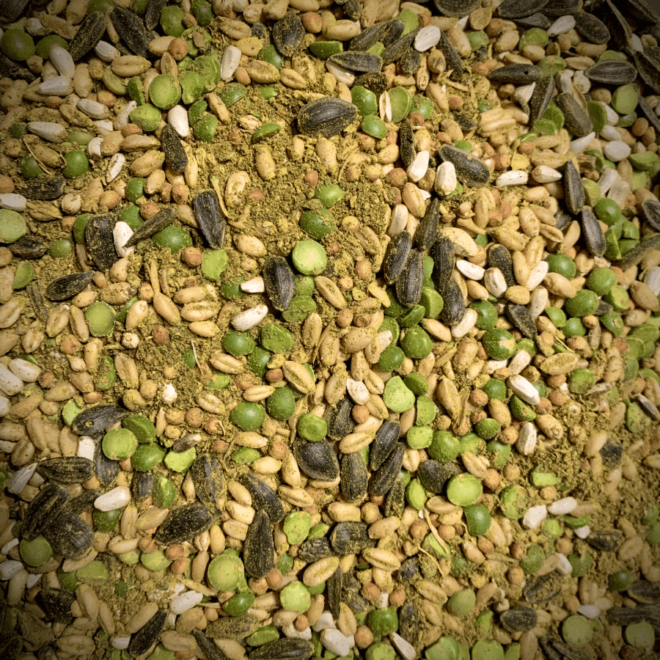Description
Application Instructions:
To harness the full potential of our compost tea, simply soak one of our specially designed tea bags in one gallon of water for 24 hours. This allows all the powerful nutrients and microorganisms to infuse into the water, creating a potent liquid that’s ready to use.
Direct Soil Application:
- After soaking, pour the compost tea from a watering can directly onto the soil around the base of your plants, targeting the root zones where it can do the most good. This method ensures that the nutrients and beneficial microbes are introduced directly where plants can absorb them efficiently, promoting root health and overall vigor.

Foliar Application:
- Compost tea can also be applied as a foliar spray once a month. To do this, fill a spray bottle with compost tea and lightly mist the leaves of your plants. This method benefits plants by providing nutrients directly through their leaves, which can be especially helpful for absorbing trace minerals and fighting off foliar diseases. The beneficial microbes in the tea help in colonizing the plant’s surfaces, creating a barrier against pathogenic microbes.
Both methods of application provide significant benefits:
- Direct soil application nourishes the root system and enhances soil microbiome health, which is essential for long-term plant health and nutrient uptake.
- Foliar application offers a quick nutrient boost and protective benefits against diseases, which can lead to more immediate visible improvements in plant health and stress resistance.
For best results, use our compost tea every two weeks during the growing season to maintain optimal soil health and plant vitality, alternating between direct soil and foliar applications to maximize the benefits.
Reusability and Storage of Compost Tea Bags
At Little House Farm, we are committed to sustainability and efficiency, which is why our compost tea bags are designed to be used multiple times. Here’s how you can maximize the use of each tea bag and properly store it for future use:
Multiple Uses:
- Each compost tea bag can be reused to brew multiple batches of tea. After the initial 24-hour soak, the tea bag still contains valuable nutrients and microorganisms that can be extracted. We recommend using the tea bag for up to three brews to ensure that you extract the maximum benefit from the ingredients.
How to Store the Tea Bag:
- After Use: Once you have brewed your compost tea, remove the tea bag from the water.
- Let It Dry: Allow the tea bag to air dry in a shaded, dry area to prevent mold and decomposition. Avoid placing it in direct sunlight as this can degrade the beneficial components.
- Refrigeration: For extended storage between uses, place the dried tea bag in a sealed plastic bag and store it in the refrigerator. This will help maintain the viability of the microorganisms and prevent any spoilage.
- Before Reuse: Before brewing another batch of tea, briefly soak the tea bag in warm water to reactivate the beneficial microbes.
Care and Maintenance:
- Inspect the tea bag for any signs of mold or foul odor before reuse. If any negative changes are observed, it is best to compost the used tea bag and start with a fresh one to ensure the quality and safety of your compost tea.
By following these simple steps, you can extend the life of your compost tea bags, making your gardening practices more sustainable and cost-effective.
A Symphony of Ingredients
Each ingredient in our compost tea plays a vital role:
- Mushroom compost and steer compost provide a nutrient-rich base.
- Blood meal and bone meal enrich the tea with high levels of nitrogen and phosphorus, essential for healthy plant growth.
- Worm castings introduce beneficial microbes and enzymes that enhance soil health and plant resilience.
- Local mycelium and mycorrhizae improve root health and nutrient absorption.
- Beneficial bacteria promote a healthy soil ecosystem, further boosting plant vitality.
- Biochar aids in nutrient retention and improves soil structure.
- Eggshell powder adds calcium, crucial for cell wall development and growth.
- Azomite, a mineral-rich substance, supplies essential trace minerals.
This blend not only nourishes plants but also supports sustainable gardening practices. The components are natural, derived from renewable sources, and help foster a healthy, thriving ecosystem that is friendly to pollinators and beneficial insects.
Sustainable, Natural, and Pollinator-Friendly
At Little House Farm, sustainability is not just a practice but a promise. Our compost tea ingredients are sourced responsibly and are completely natural, ensuring that we support ecological balance and reduce environmental impact. This commitment extends to the well-being of pollinators—crucial for the health of any garden and the broader ecosystem. Our tea helps create a garden environment that supports and nurtures these essential creatures.
The Perfect Alternative to Chemical Fertilizers
One of the most compelling benefits of using Little House Farm’s compost tea is its role as a sustainable alternative to chemical-based fertilizers. Unlike synthetic options that can degrade soil quality and disrupt local ecosystems over time, our natural compost tea helps heal and rejuvenate the soil for long-term health. By nurturing the soil with organic matter and beneficial nutrients, compost tea not only feeds the plants but also revitalizes the soil’s structure and fertility.
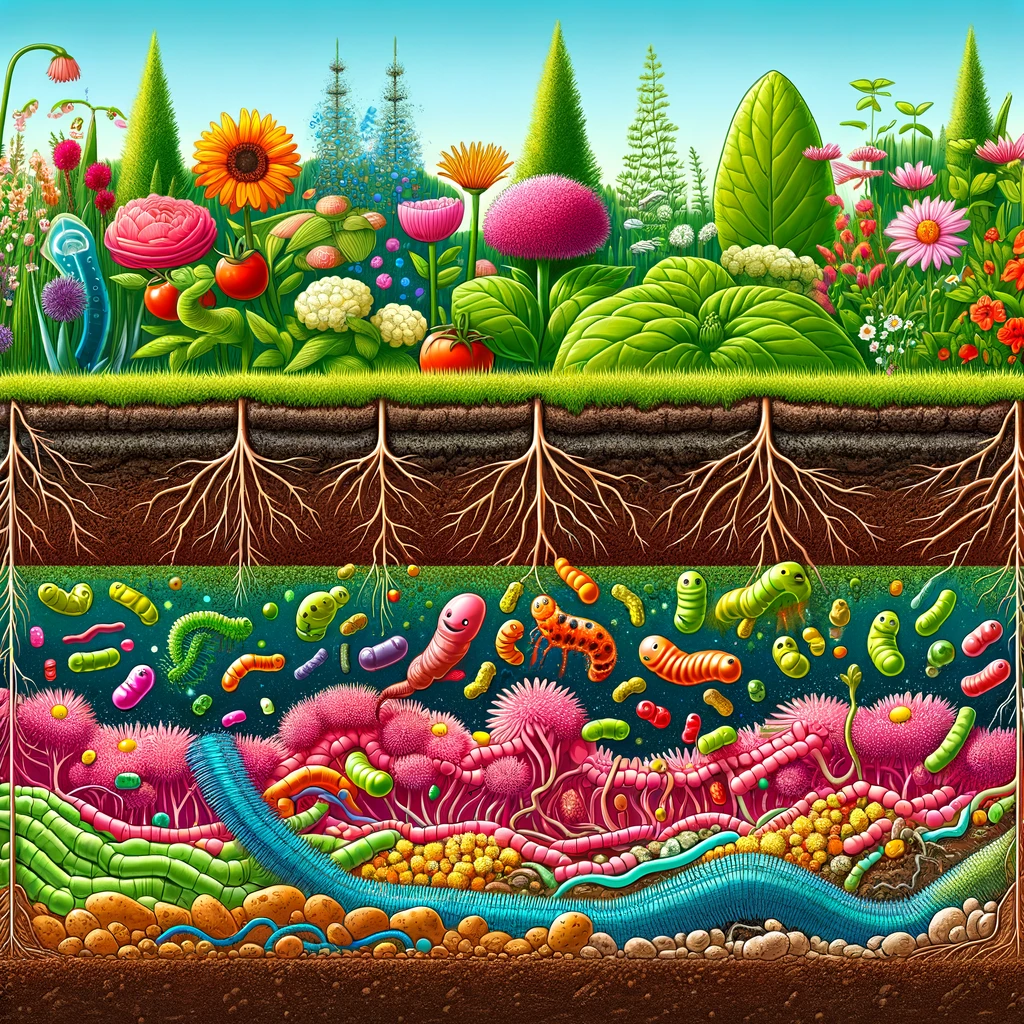
Building a Healthy Microbiome
Our compost tea is teeming with life. It actively builds the soil’s microbiome, the community of microorganisms that are essential for nutrient cycling and disease suppression. Ingredients like worm castings and mycorrhizae introduce beneficial bacteria and fungi that form symbiotic relationships with plant roots, enhancing nutrient absorption and water uptake. The presence of beneficial bacteria from our compost tea helps outcompete harmful pathogens, reducing the need for chemical pesticides and promoting a more resilient garden ecosystem.
Securing a Sustainable Future
Each gardener and farmer who uses Little House Farm’s compost tea takes a significant step toward rebuilding and enhancing soil health. This not only ensures that future crops are nutrient-dense but also supports essential pollinator life, crucial for the continuation of many plant species and agricultural productivity. By choosing our compost tea, you contribute to a cycle of sustainability that enriches the soil, supports pollinators, and leads to a healthier planet.
Conclusion
Using Little House Farm’s compost tea not only nourishes your plants but also contributes to a more sustainable gardening practice. Our reusable tea bags are part of this commitment, helping you maximize both the environmental and economic benefits. Embrace the full potential of our compost tea and see your garden thrive.
